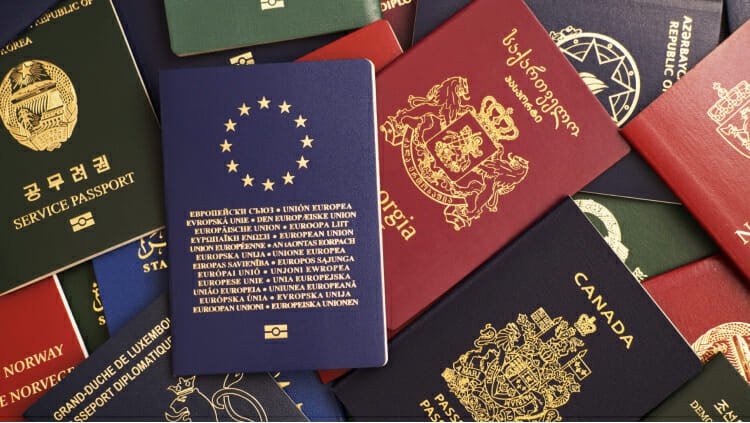To grasp Indian visa rules, know your visa type and its validity, often six months for tourists. Apply for extensions 60 days before expiry, ensuring proper documentation. Failure to extend correctly results in penalties. Overstay? Legal issues, deportation, and hefty fines could await, affecting future travels. Understand visa consequences before your trip to navigate smoothly.
Key Takeaways
- Different visas have specific validity periods ranging from 6 months to extended durations.
- Overstaying can result in legal action, deportation, financial penalties, and travel restrictions.
- Adhering to visa regulations is crucial to avoid negative impacts on immigration records.
- Failure to comply with visa extension procedures can lead to penalties and future visa application issues.
- Plan departure in advance, track visa expiration dates, and make necessary arrangements to avoid overstay.
Types of Indian Visas
When traveling to India, it’s important to understand the various types of visas available for your visit. Indian visa categories cater to different purposes, such as tourism, business, medical treatment, conferences, and more.
To enter India, you must meet specific entry requirements based on the type of visa you’re applying for. Tourist visas are ideal for those looking to explore India’s rich culture and heritage, while business visas are suitable for individuals engaging in commercial activities. Medical visas are for those seeking medical treatment in India, and conference visas are for attendees of conferences or seminars.
Each visa category has its own set of entry requirements that must be fulfilled to obtain the visa successfully. For instance, tourist visas may require proof of travel arrangements and accommodation bookings, while business visas might necessitate a letter of invitation from an Indian company.
Understanding the different visa categories and their entry requirements is essential for a smooth and hassle-free entry into India.
Validity Periods for Indian Visas
Let’s talk about the validity periods for Indian visas. Understanding the implications of visa expiry, criteria for extension eligibility, and penalties for overstaying are vital aspects to take into account.
Knowing these points will help you navigate your visa stay in India smoothly.
Visa Expiry Implications
Understanding the implications of visa expiry dates is essential for travelers holding Indian visas. It is important to be aware of the validity periods to avoid overstaying and facing potential consequences. Indian visas come with specific expiry dates, and it’s vital to plan your travels accordingly to prevent any issues.
To help you grasp the different validity periods for Indian visas, here is a breakdown:
| Visa Type | Validity Period | Extension/Renewal Opportunities |
|---|---|---|
| Tourist Visa | Usually 6 months | Can be extended in certain cases |
| Business Visa | Varies based on purpose | May be renewed upon expiration |
| Student Visa | Duration of course | Possible to extend for further studies |
Knowing the validity period of your visa allows you to make informed decisions regarding your stay in India. In case you need to extend your visa beyond the original expiry date, there are opportunities for both visa extension and renewal depending on the type of visa you hold. Stay informed to ensure a smooth and lawful stay in India.
Extension Eligibility Criteria
To explore the eligibility criteria for extending Indian visas based on their validity periods, consider the specific requirements for each visa type.
Extending your stay in India is subject to the visa regulations governing your current visa. Tourist visas are usually granted for 6 months, and extensions are generally not allowed beyond this initial period.
Business visas, on the other hand, can often be extended for up to 5 years, depending on the nature of your business activities in India.
Student visas have specific guidelines for extension eligibility, typically linked to the duration of the academic program.
Employment visas may be extended based on the duration of your employment contract or project in India.
Additionally, medical visas may be extended if the treatment requires a longer stay.
It’s essential to familiarize yourself with the extension eligibility criteria for your specific visa type to ensure compliance with Indian visa regulations and avoid any penalties for overstaying.
Penalties for Overstaying
Avoid overstaying your Indian visa as it can result in penalties and legal consequences. Overstaying your visa in India can lead to severe repercussions and visa violation penalties. The Indian government takes visa overstays seriously, and it is important to adhere to the specified visa validity periods.
Overstay Repercussions and Visa Violation Penalties:
| Overstay Duration | Penalty | Legal Consequences |
|---|---|---|
| Up to 90 days | Fine of up to INR 10,000 | Possible deportation |
| 91 days to 2 years | Fine and possible ban | Ban from re-entering India |
| Over 2 years | Hefty fine and long ban | Potential legal action |
Understanding the penalties for overstaying your Indian visa is crucial for all travelers. By complying with the visa regulations and timely departure, you can avoid facing these severe consequences. Remember to respect the visa validity dates to ensure a smooth and enjoyable stay in India.
Regulations for Extending Indian Visas
If you plan to extend your Indian visa, you must adhere to specific regulations set by Indian immigration authorities to avoid any OVERSTAY ON INDIAN VISA. The visa extension process in India requires you to apply for an extension at the Foreigners Regional Registration Office (FRRO) or the Foreigners Registration Office (FRO) at least 60 days before your current visa expires. It’s important to initiate this process well in advance to avoid any potential overstay consequences.
To extend your Indian visa, you’ll need to fill out the necessary forms and provide supporting documents such as a valid passport, visa extension application, proof of financial stability, and a valid reason for the extension. Additionally, you may be required to pay a fee depending on the type of visa and the duration of the extension requested.
Failure to follow the proper visa extension procedures can lead to overstay consequences, including fines, deportation, or even being banned from entering India in the future. Therefore, it’s essential to comply with the regulations regarding INDIAN VISA VALIDITY and submit your visa extension application on time to avoid any complications.
4o mini
Consequences of Visa Overstay
Facing consequences for overstaying your Indian visa can result in various penalties and potential restrictions on future visits to the country.
When you overstay your visa, you may face the following:
- Critical implications: Overstaying your visa is a violation of Indian immigration laws, and you could potentially face legal action or deportation.
- Financial consequences: There are financial penalties for overstaying your visa that increase the longer you remain in the country unlawfully.
- Future travel restrictions: Overstaying may lead to being blacklisted or barred from re-entering India for a specified period.
- Impact on visa applications: Overstaying can negatively affect any future visa applications you make for India or other countries.
It is important to be aware of the implications of overstaying your visa to avoid facing these severe consequences.
It’s always advisable to abide by the visa regulations and seek appropriate extensions if needed to guarantee a smooth and lawful visit to India.
Fines and Penalties for Overstaying
If you overstay your Indian visa, you may face financial penalties and legal repercussions. Understanding the consequences of overstaying can help you avoid unnecessary fines and potential legal issues.
Let’s explore the financial and legal implications of overstaying your Indian visa.
Overstay Consequences Overview
Visitors who overstay their Indian visa may face fines and penalties imposed by the authorities. Understanding the consequences of overstaying your visa is vital to avoid legal issues and future travel complications. Here are key points to keep in mind:
- Overstay Consequences: Overstaying your visa can lead to legal action, deportation, and being blacklisted from entering India in the future.
- Visa Extension Eligibility: If you wish to extend your stay in India, make sure you meet the eligibility criteria and apply for an extension before your current visa expires.
- Penalties: Overstaying can result in financial penalties that increase the longer you stay beyond your allowed period.
- Immigration Record: Overstaying can negatively impact your immigration record, potentially affecting your ability to obtain visas for other countries in the future.
Being aware of the implications of overstaying your Indian visa is essential for a smooth and lawful travel experience. Make sure to adhere to the visa regulations and seek guidance if you need to extend your stay legally.
Financial Penalties for Overstay
Understanding the financial penalties for overstaying your Indian visa is vital to avoiding legal repercussions and travel complications. Overstaying your visa in India can lead to significant financial implications. If you exceed the allowed duration, you may face fines that increase based on the duration of your overstay.
The penalties can range from minimal amounts to substantial fines, depending on the length of time you remain in the country unlawfully. These financial consequences can be severe and can impact your future travel plans and visa approvals.
Additionally, overstaying your visa can result in immigration consequences, such as being barred from entering India for a specified period or even permanently. It’s important to adhere to the visa regulations and depart the country before your visa expires to avoid facing these financial and immigration penalties.
Legal Repercussions of Overstay
Facing legal repercussions for overstaying your Indian visa includes incurring fines and penalties that escalate based on the duration of your overstay. Failure to comply with Indian immigration laws can lead to severe consequences.
Here are some key points to keep in mind:
- Immigration consequences: Overstaying your Indian visa can result in being blacklisted or banned from entering the country for a specified period.
- Legal implications: Violating visa regulations can lead to legal action, fines, or deportation by Indian authorities.
- Financial penalties: In addition to fines for overstaying, you may also be required to cover the costs of your deportation.
- Impact on future travel: Overstaying your visa in India can affect your ability to obtain visas for other countries or re-enter India in the future.
It is important to adhere to visa regulations and avoid overstaying to prevent facing these serious legal repercussions and financial burdens.
Avoiding Overstay: Tips and Guidelines
To guarantee compliance with Indian visa regulations, it’s important to be mindful of the duration of your stay and to depart before your visa expires.
One significant aspect to take into account is obtaining travel insurance that covers your entire stay in India. This insurance can provide assistance in case of emergencies, ensuring you’re prepared for unexpected situations during your visit.
Additionally, it’s essential to familiarize yourself with border control procedures to avoid any complications. Make sure to have all necessary documents ready for inspection and follow instructions given by officials diligently. Being well-informed about entry and exit requirements can help streamline the process and prevent any delays or issues at the border.
Moreover, keeping track of your visa expiration date and planning your departure in advance is key to avoiding overstay.
Set reminders or alarms to alert you when it’s time to leave and make arrangements accordingly. By staying organized and proactive, you can ensure a smooth and compliant stay in India.
Frequently Asked Questions
Can I Work on a Tourist Visa in India?
You can’t work on a tourist visa in India. There are strict working restrictions outlined in visa regulations. Make sure to abide by these rules to avoid any legal consequences during your stay.
Are There Any Exceptions to the Overstay Penalties?
If you overstay your visa in India, there are severe consequences, including fines, deportation, and even a ban from re-entry. Visa extensions may be possible in certain situations, but it’s essential to follow the rules.
Is It Possible to Leave India After Visa Expiry?
Yes, you can leave India after your visa expires, but there may be consequences. It is important to be aware of visa extensions to avoid overstaying and potential penalties. Always stay informed about your visa status.
Can I Apply for a New Visa After Overstaying?
If you overstay your visa, you may face travel restrictions. Applying for a new visa after overstaying can lead to immigration consequences. Make sure to follow visa regulations to avoid issues with renewal.
What Happens if I Overstay Due to Medical Emergency?
If you overstay due to a medical emergency, inform the authorities immediately. Consequences vary, and you may need to follow visa extension procedures. It’s important to prioritize your health while addressing any visa issues promptly.
Conclusion
Ultimately, it’s important to understand the validity of your Indian visa and the consequences of overstaying.
Make sure to check the type and duration of your visa, follow regulations for extending it if needed, and be aware of the fines and penalties for overstay.
By staying informed and compliant with visa regulations, you can avoid any unnecessary complications or legal issues during your time in India.




